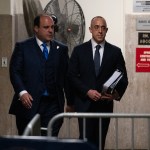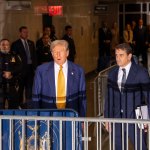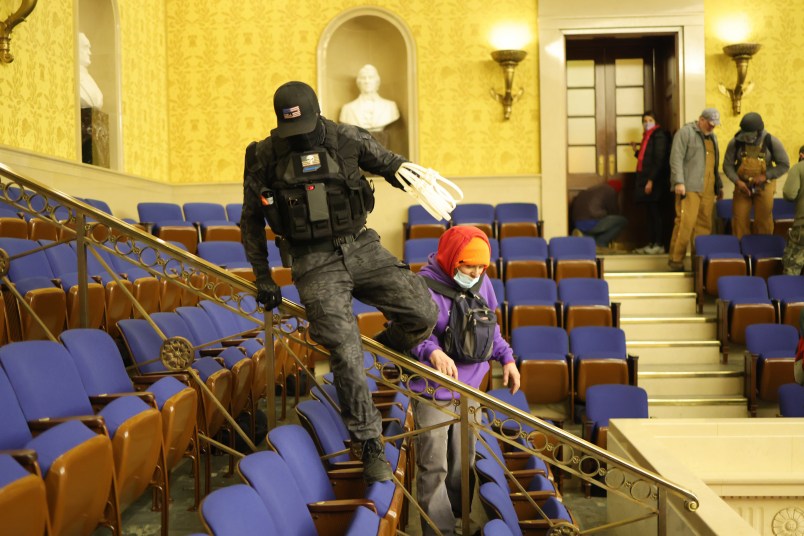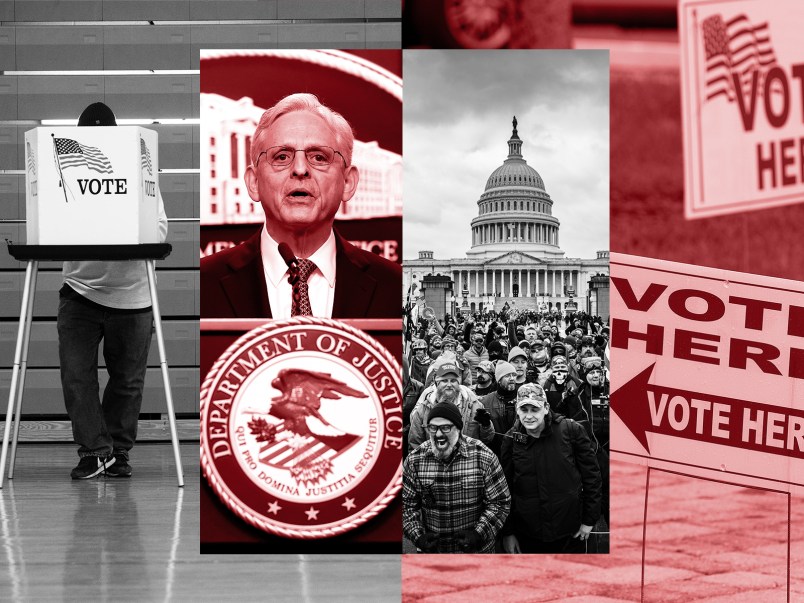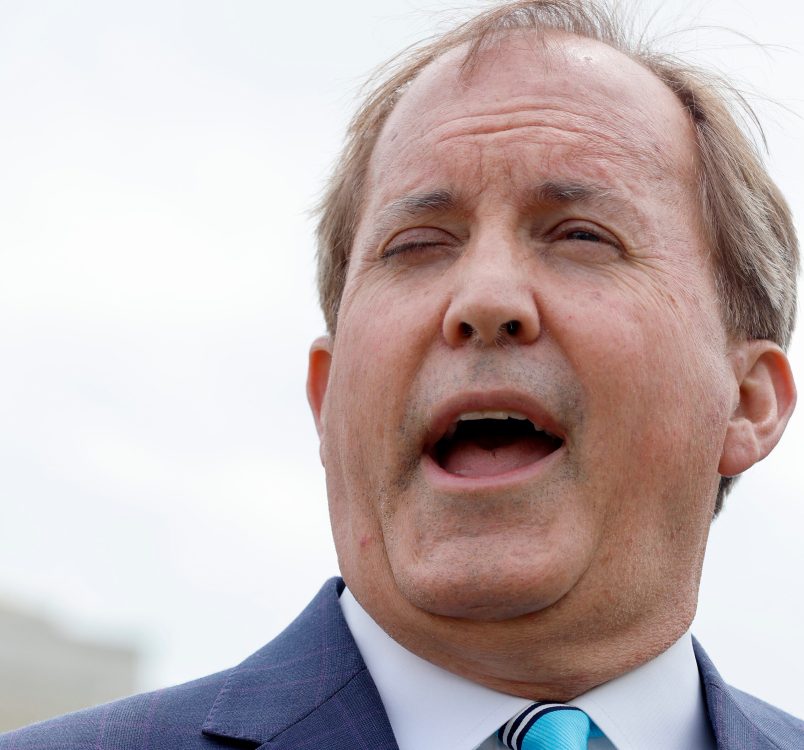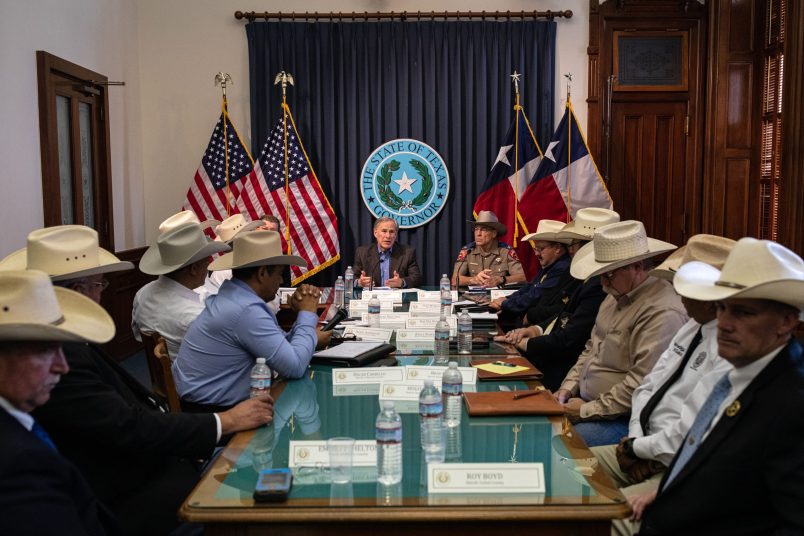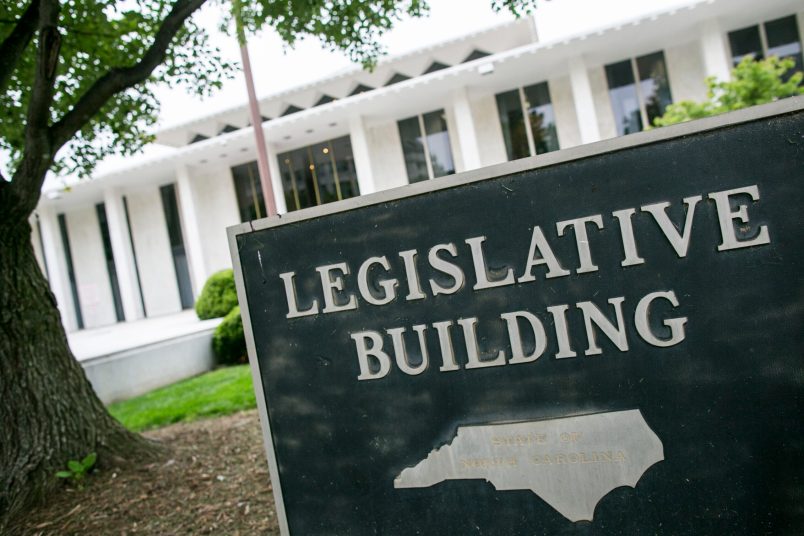The Senate’s first major hearing on the Capitol insurrection provided new details about the Jan. 6 assault on the electoral college certification.
Not only did the event provide the first public hearing in which those responsible for defending the Capitol answered questions about the assault in public, but it also gave insight into how key senators — some of whom laid the groundwork for the attack — plan on navigating the aftermath.
Many questions, however, were left unanswered.
Here are five points on what the hearing revealed about the attack itself, and how the GOP plans on responding.
Witnesses Largely Framed Insurrection As Intelligence Lapse
Many senators’ questions focused on a report out of the FBI Norfolk, Virginia field office issued on January 5 that told of pro-Trump extremists preparing to come to Washington for “war.”
Former Capitol Police Chief Stephen Sund repeated multiple times that he never saw the report, though he said he had found out in the last 24 hours that it did make its way to some individuals with Capitol Police. He previously said that if he had read it, it would have informed the security planning. Instead, he said, all the intelligence they had largely mirrored what they saw before other MAGA protests and rallies in the months before, none of which got violent like the one on January 6.
Much of the hearing was framed this way, with the former Capitol Police chief, current acting Metro Police chief and the former sergeants at arms blaming the security failures on intelligence lapses.
RonJon Suggests That It Was All An Antifa False Flag
Sen. Ron Johnson (R-WI) used the vast majority of his time not to ask questions, but rather to read a column which suggested that it wasn’t Trump supporters but antifa that attacked the Capitol.
Johnson read excerpts which suggested that the entire attack was a false flag, a conspiracy hatched by “fake Trump supporters.”
The false flag conspiracy theory was birthed in QAnon communities online and has quickly seeped into the Republican mainstream, with some senators — Cruz, Graham — even suggesting that House Speaker Nancy Pelosi (D-CA) had a hand in easing the way in for the pro-Trump mob because she liked the optics.
The senator stopped just short of adopting the views in the column as his own. But for the purposes of the hearing, that distinction didn’t really matter as he read into the record a piece which argued that “agents-provocateurs placed hundreds of unsuspecting supporters of [Trump] in physical danger.”
At the end of his time, Johnson did take a minute to ask a few questions of Stephen Sund, the former Capitol police chief.
Johnson pointed out to the former official that “the vast majority of Trump supporters are pro-law enforcement.” How, then, could it be that they were the ones who breached the Capitol, and not a lawless antifa horde?
“People were showing up saying, hey, we’re police, let us through,” Sund replied. “And [they] still wanted to violate the law to get inside the building.”
We’re No Closer To Knowing Whether Trump Obstructed The Response
Much of the discussion at the hearing revolved around the who, what, when, and where of National Guard support.
And while it’s been clear since the day of the attack that there was a serious delay in how long it took officials to approve the Guard’s activation, much remains unknown regarding how and why that decision was delayed.
Reports at the time suggested that the Pentagon initially denied a request from D.C. officials to activate the Guard in response to the insurrection. But it remains completely murky what the person statutorily in control of the D.C. National Guard — then-President Trump — was doing at the time.
The hearing went no further towards answering that question, dancing around the topic at one point by entertaining a proposal that would authorize Capitol security officials to circumvent the President to activate the Guard in “exigent circumstances.”
But There Are Lots Of Recriminations Among Those Involved
What the hearing did focus on, however, is the tick-tock of how those in charge of Capitol security responded on Jan. 6.
Much of this devolved into bickering between Sund and Paul Irving, the former Sergeant at Arms for the House of Representatives.
The stage was set for the scuffle in the pair’s dueling opening remarks. Sund said that he had told Irving at 1:09 p.m. on Jan. 6 that the Guard needed to be activated; Irving said he had no recollection of that conversation and that his phone records show no communication from Sund until 1:28 p.m.
The two shifted blame for this at various moments throughout the hearing. Irving, at one point, offered to supply his phone records to the committee to verify his claims.
Sund had claimed that Irving said that higher-ups would need to approve any National Guard activation request.
When asked whether he thought he needed approval from congressional leadership, Irving replied, “absolutely not.”
Republicans Pile On Honoré For Calling Capitol Police Leadership ‘Complicit’
A couple of Republicans, Sens. Josh Hawley (R-MO) and Bill Hagerty (R-TN) in particular, homed in on comments from Lt. Gen. Russel Honoré about the Capitol Police being “complicit” in the insurrection.
Honoré, known for his effectiveness amid the nightmare response to Hurricane Katrina, has been tapped by Pelosi to lead an investigation into the security failures on January 6.
“I think once this all gets uncovered, it was complicit actions by Capitol Police,” he had said in an MSNBC interview.
“It’s like the Capitol Police was doing security by Zoom like we’re doing this interview by Zoom,” he added during an interview with a New Orleans Fox affiliate. “I don’t know, I’ve just never seen so much incompetence, so they’re either that stupid, or ignorant or complicit. I think they were complicit.”
He has since clarified that his comments were about Capitol Police leadership, not the rank-and-file.
Some House Republicans have chafed at Pelosi’s appointment of Honoré without consulting any Republicans, though they acknowledge that he has reached out to GOP members.
Much of Hawley’s particular ire may have to do with a now-deleted Tweet Honoré sent out in the days after the attack but before he was picked to lead the investigation.
“This little peace of shit with his @Yale law degree should be run out of DC and Disbarred ASAP @HawleyMO @tedcruz aaa hats,” it read. “These @Yale and @Harvard law grads is high order white privilege.”


